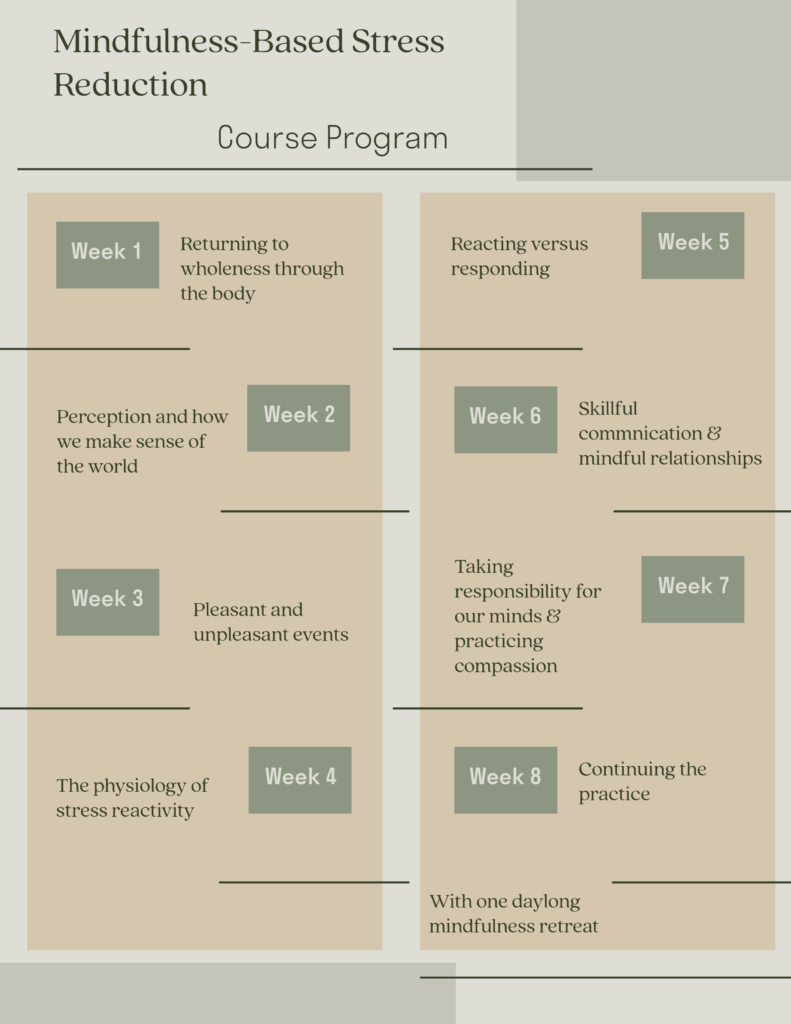What is mindfulness?
“Mindfulness is paying attention in a particular way: on purpose, in the present moment, and non-judgmentally.” – Jon Kabat-Zinn
Our minds are often wandering. Ruminating over the past, or worrying and excessive planning about the future. Research shows that our minds are lost in thought up to 50% of the time. The mind-body connection can get disrupted and become out of sync.
Mindfulness is about being fully aware of the present moment. Of your emotions, thoughts, sensations. It is coming back home to your senses. To live an intentional, fully embodied life and move away from a life on autopilot. As we practice mindfulness, we see things more clearly and can live with more ease.

Trauma-informed mindfulness recognizes the challenges and needs that are unique to those suffering from trauma. Traditional mindfulness practices might be overwhelming, and introducing trauma-informed adaptations offer a path to safety and resilience without retraumatization.
Mindfulness-Based Stress Reduction
Developed in 1979, Mindfulness-Based Stress Reduction (MBSR) is an 8-week program on mindfulness practice developed by Jon Kabat-Zinn at the University of Massachusetts Medical School. It was designed to help people manage stress, pain, illness, and anxiety.
Since then over 30,000 people have taken MBSR. It is considered the gold standard in mindfulness training: there are several other mindfulness-based classes and interventions, but MBSR is the oldest, most studied, and most evidence-based for improvements in health and well-being.
This interactive and experiential course helps you draw on your own inner resources to actively engage in caring for yourself. This can lead to finding greater resilience, balance, ease, and peace of mind.
Evidence-based benefits of MBSR
- Immune system function
- Reducing anxiety
- Preventing relapse of depression
- Reducing negative emotions
- Responding to stress
- Managing chronic pain
- Enhancing compassion and altruism
- Veterans and other sufferers of PTSD
- General health and well-being
- Professionals: coping with stress, connecting with patients, and reducing burnout-inducing negative emotions and anxiety
Practices to support you and your well-being
Body awareness practices
Body scan. Anchoring using awareness
of breath, sounds, thoughts, feelings.
Working with pain. Lovingkindness.
Movement meditation practices
Mindful movement. Gentle yoga. Walking
meditation.

Mindfulness in daily life
Mindful eating. Mindful listening. Mindful communication.
Interactive lessons
Guided instruction throughout class. Group exercises and discussion. 30-45 minutes of daily at-home practice is encouraged, with resources provided to support your ongoing investigation of mindfulness.

